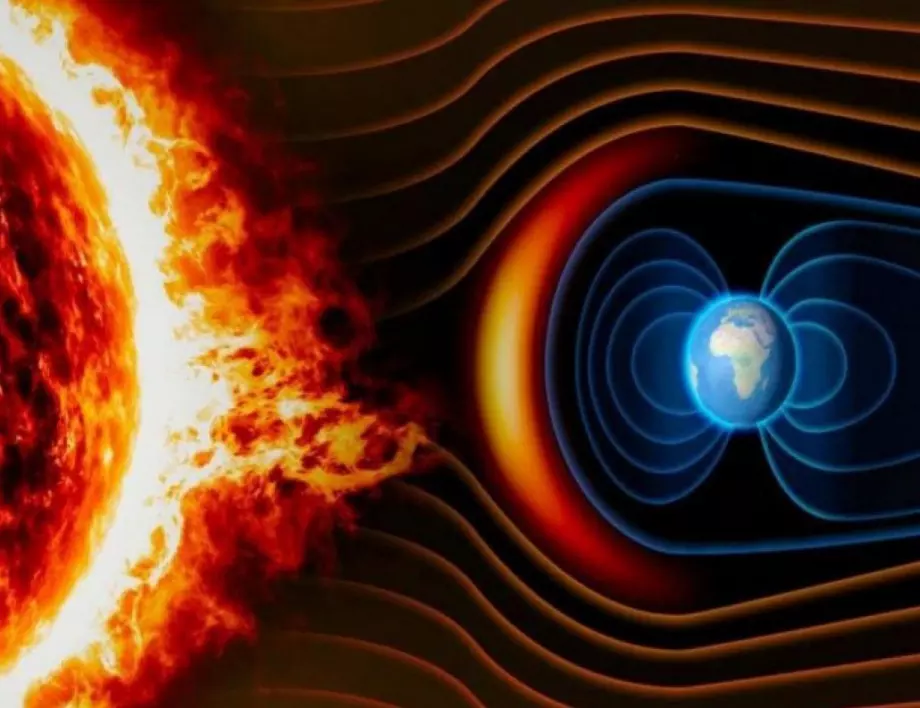The geomagnetic situation on our planet remains unstable over the weekend. After the strong magnetic storm on August 18, a weak G1 magnetic storm was recorded today after another coronal mass ejection (CME) from the Sun hit our planet’s magnetic field. Even a weak CME strike can cause a G1 storm, so experts advise to keep an eye on updated information, writes SpaceWeather.com. During magnetic storms, experts advise not to expose yourself to unnecessary stress. What is this phenomenon and how does it affect the planet and man? Magnetic storms usually occur on average 5-6 times a year and can last for several days, but recently more “solar attacks” have been recorded on Earth. This is related to the increased activity of the Sun, which is moving towards its peak in the 25th solar cycle. Solar flares are expected to become more frequent until 2025, after which solar activity will begin to decline. When the Sun sends a stream of solar wind or ejects a coronal mass and it hits the Earth’s magnetic field, a geomagnetic storm is registered on our planet. The US National Oceanic and Atmospheric Administration (NOAA) has divided solar flares as well as geomagnetic storms into 5 categories according to their strength – from G1 to G5, with G1 being the weakest and G5 being extreme. storm, and it could cause serious problems in Earth’s power transmission and radio communication systems, as well as cause damage to orbital satellites and GPS systems. Usually, geomagnetic storms do not pose a serious danger, but they can complicate the lives of those who have health problems. Let us tell you what a magnetic storm is and how you can survive it.
What is a magnetic storm?
Around the Earth there is an invisible shell – the magnetosphere, which protects our planet from solar radiation. From space, it is affected by the flow of the solar wind – that is the name of the ionized particles that are constantly scattered from the Sun at a speed of 400 km/s. Normally, the pressure of the solar wind and the pressure of the Earth’s magnetic envelope are equal. But when eruptions occur on the Sun, the speed of the solar wind increases, the balance of pressure changes, the magnetosphere seems to shrink over the Earth, and the magnitudes of the currents begin to change in it. Scientists call this a geomagnetic storm. The eruptions of some young stars are so powerful that they can destroy the atmospheres of their planets. The activity of the Sun is lower, but it can still affect Earthlings, causing interference in radio communications and malfunctions in the operation of appliances.
Is there a danger to people?
There is no consensus among scientists about how this natural phenomenon affects humans and animals. Research shows that during the period of magnetic storms, the number of deaths from myocardial infarction and stroke increases. But this increase is insignificant (about 20%), moreover, it is only about statistics. It is difficult to assess the impact of a particular geomagnetic event on human health. “In order to conduct a study of the impact of a magnetic storm on human health and condition, it is necessary to have clear criteria that can be measured,” Alexey Struminsky, a leading researcher at the Institute for Space Research of the Russian Academy of Sciences, told TASS. – Headache or tachycardia is not a criterion, such symptoms can be caused by a number of other reasons, by a change in weather, for example, a change in atmospheric pressure. But a magnetic storm doesn’t affect atmospheric pressure.”
During magnetic storms, people who suffer from hypertension should drink more water and reduce their salt intake, as salt retains fluids in the body and leads to an increase in blood pressure. Hypotonics can take a tonic tincture of Eleutherococcus or lemon grass. These are the advices of general practitioner Elena Tikhomirova. But many doctors have a different opinion. According to some of them, the record solar flares observed in recent days may affect the well-being of weather-sensitive people. According to some scientists, the mechanisms of the impact of electromagnetic interference on people are poorly understood. However, even in those who are not aware of the fact of a solar flare, there is a deterioration in well-being. Several effects of exposure to magnetic field disturbances due to solar flares have been hypothesized: increased blood pressure, reduced work capacity, headaches, increased anxiety, and exacerbation of chronic diseases, including allergies. There is an opinion that a person instinctively perceives fluctuations in the Earth’s magnetic background as a threat to life. And the increase in stress hormones – cortisol and adrenaline – leads to spasm of blood vessels and increased pressure.
The advice of doctors
Although scientists have not yet sufficiently studied how the fluctuations of the magnetic field affect the human body, doctors advise people who do not tolerate pressure spikes to take insurance on days of magnetic storms and follow simple rules. “On such days, we observe that in hypertensives the pressure jumps, and in hypotensives, on the contrary, it drops – explains the therapist Elena Tikhomirova. – To level these problems, hypertensives should drink more water and reduce salt intake during this period, because salt retains fluid in the body and leads to an increase in pressure. And hypotensive patients can take a tonic tincture of eleuterococcus or lemongrass. During magnetic storms, it is also important that weather-sensitive people get enough sleep, avoid increased stress, sports and tiring shopping trips.
Photo: NOAA









